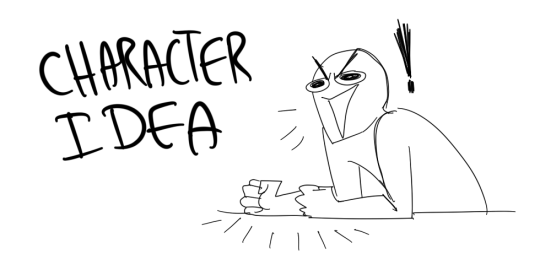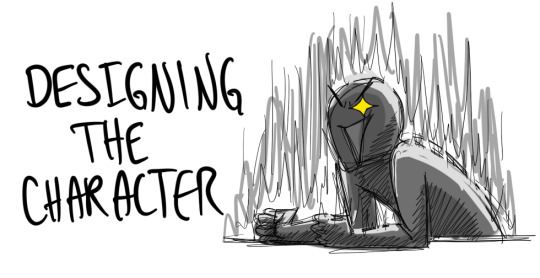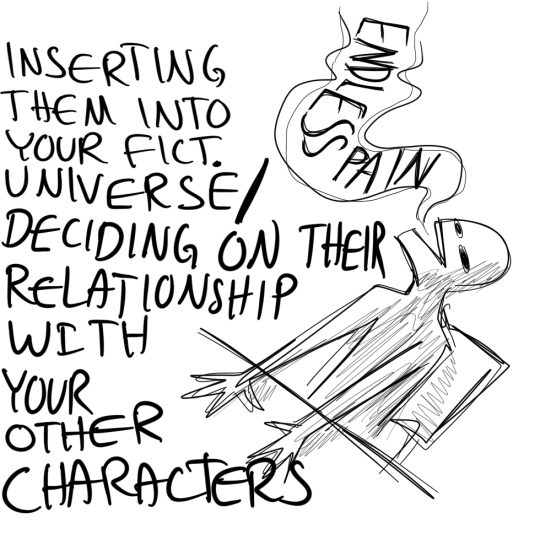Text
Dhampirs vs Vampires: Homebrewed Lore
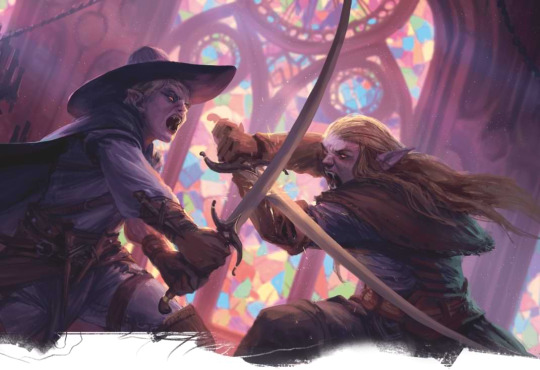
A while ago, I played as a dhampir with a DM who hated vampires with a passion. In order to placate him and convince him to let me play a Dhampir, I came up with a system of distinctions between vampires and dhampirs that I felt I would share for you to use in your own campaigns if you so choose.
Vampires are Undead while Dhampirs are Humanoid. Because Dhampirs haven’t lost their humanity, they aren’t as compelled by their thirst as a vampire is.
Dhampirs can subsist off food and go days without satiating their bloodlust with proper self-control. Each day they go without drinking blood, they must make a Wisdom saving throw to maintain their self-control, and the DC rises with each day they go without feeding on blood.
Animal blood is fine, but humanoid blood has more the nutrients they need. Humanoid blood satiates their bloodlust more than any other kind. Feeding on humanoid blood lowers the bloodlust saving throw DC back to base 8, while animal blood lowers the DC by 1.
Dhampirs live in rigid and strict noble houses ruled by dhampir noble lords. Once turned, a dhampir joins the noble house of the dhampir who turned them. From the moment they become a dhampir, they are beholden to dhampir laws.
Dhampiric laws include: no feeding on anything except wild animals, and humanoids that deserve to suffer. Do not turn a sentient creature into a dhampir without their consent. With consent, you can feed from a humanoid, so long as you do not kill or turn them.
Any Dhampir of any rank who violates the laws of the dhampir will be dismembered and destroyed by the rest of their noble house.
766 notes
·
View notes
Note
Hello! I love your blog and I love YOU! Do you have any tips on writing dark aesthetic or gothic?
Tips for Writing Dark/Gothic Aesthetic
Aww, thank you! ♥
I don't write a lot of dark/spooky stuff, so I don't have much in the way of tips for writing dark/gothic stories. However, I do have a few posts that will help with description in this type of story. You can read them here:
Horror by Darkness
Horror by Daylight
Adding Emotional Details to a Horror/Tragedy Scene
I hope that helps! ♥
•••••••••••••••••••••••••••••••••
Have a writing question? My inbox is always open!
Visit my FAQ
See my Master List of Top Posts
Go to ko-fi.com/wqa to buy me coffee or see my commissions!
43 notes
·
View notes
Photo




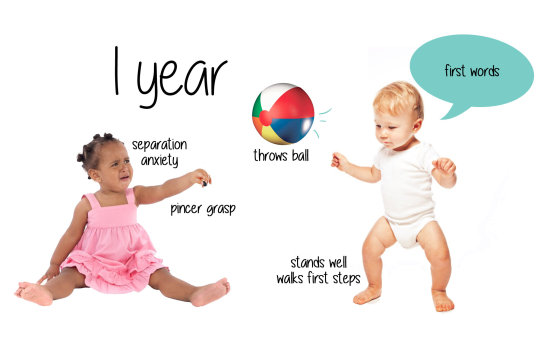


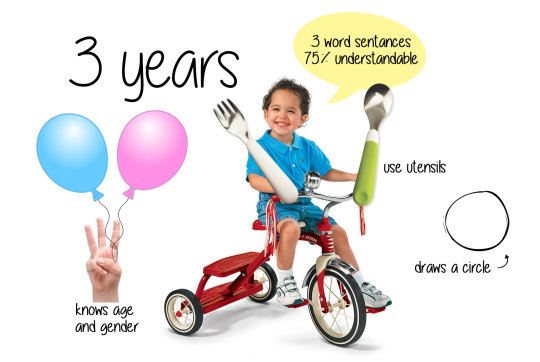

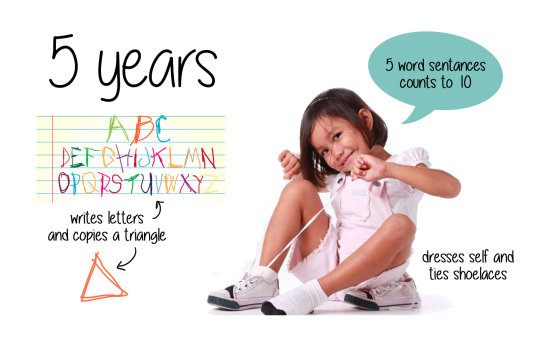
I’m pretty sure I’m not the only one who has trouble remembering developmental milestones. I put these together, but can’t take credit for any of the photography. Hope someone finds them helpful!
166K notes
·
View notes
Note
How would you go about flipping positive character traits on their head? What's your philosophy behind this and can you provide some examples of this idea in action?
I once watched a really interesting video about how femininity and masculinity is portrayed in literature (and more specifically, modern literature) and it focused mainly on “strong female characters”. I really liked something that this person said near the end of the video about how suppressing certain positive emotions and traits can make them negative, and have since adopted that as my personal manner of fleshing out character depth.
I wrote out the examples she gave and linked her video below if you’d like to watch the entire thing. It’s really well done and she gives a really eloquent and complete perspective that resonates a lot with me as a writer.
Positive Masculine Traits/Emotions
focus when suppressed becomes small-mindedness
confidence when suppressed becomes ego
discipline when suppressed becomes control
protection when suppressed becomes aggression
Positive Feminine Traits/Emotions
vulnerability when suppressed becomes oversensitivity
desire to nurture when suppressed becomes neediness
cooperation when suppressed becomes submission
subtlety when suppressed becomes manipulation
ability to create beauty when suppressed becomes vanity/shallowness
Basic Emotions When Suppressed
love when suppressed becomes possession
sadness when suppressed becomes depression
anger when suppressed becomes rage
fear when suppressed becomes terror
If you’d like to check out the video that inspired this response, I’ve linked it here. The Authentic Observer makes really interesting and well-thought out video essays about literature and media, and I definitely recommend you check her out. If you do, tell her I sent you!
VISIT THE WORDSNSTUFF WEBSITE AT WORDSNSTUFFBLOG.COM
If you enjoy my blog and wish for it to continue being updated frequently and for me to continue putting my energy toward answering your questions, please consider Buying Me A Coffee or supporting me on Patreon.
Wordsnstuff also has a newsletter, which you can subscribe to by filling out the pop up on wordsnstuff.tumblr.com.
I’d also really appreciate it if you would check out my studyblr, which helps keep me motivated as a full time student. I also run writing sprints over on snapchat.
3K notes
·
View notes
Text
Latin phrases to use as incantations.
This is gonna be a long list.
ab intra - from within
ab origine - from the source
absit iniuria - “let insult be absent”
absit invidia - “let envy be absent”
absit omen - “let omens be absent”
ab uno disce omnes - from one, learn all.
abyssus abyssum invocat - deep calleth unto deep
a capite ad calcem - from head to heel
acta non verba - actions not words
ad altiora tendo - “I strive to higher things”
ad astra - to the stars
ad fontes - to the sources
ad meliora - towards better things
ad oculos - to the eyes
ad undas - to the waves
ad victoriam - to victory
adsum - I am here
a fortiori - from the stronger/from strength
a mari usque ad mare - from sea to sea
audeamus - let us dare
audentes fortuna iuvat - fortune favors the bold
audi, vide, tace - hear, see, be silent
beatae memoriae - of blessed memory
bona fide - in good faith
bono malum superate - overcome evil with good
capax infiniti - holding the infinite
carpe diem - seize the day
carpe noctem - seize the night
cave - beware
ceteris paribus - all other things being equal
circa - around
citius, altius, fortius - faster, higher, stronger
clavis aurea - golden key
cogito ergo sum - I think, therefor I am
compos mentis - in control of the mind
concilio et labore - by wisdom and effort
concordia cum veritate - in harmony with truth
concordia salus - well-being through harmony
coniunctis viribus - with connected strength
consummatum est - it is complete
corruptus in extremis - corrupt to the extreme
crescit eundo - it grows as it goes
de novo - from the new
de profundis - from the depths
dies irae - day of wrath
dona nobis pacem - give us peace
ego te provoco - I challenge you
esse est percipi - to be is to be perceived
esse quam videri - to be, rather than to seem
esto quod es - be what you are
ex animo - from the soul
ex luna scientia - from the moon, knowledge
ex scientia tridens - from knowledge, sea power
ex silentio - from silence
ex undis - from the waves of the sea
experientia docet - experience teaches
fac et spera - do and hope
fac fortia et patere - do brave deed and endure
faciam quodlibet quod necesse est - I’ll do whatever it takes
faciam ut mei memineris - I’ll make you remember me
facta, non verba - deeds, not words
fortis et liber - strong and free
fortis in arduis - strong in difficulties
gloriosus et liber - glorious and free
hic abundant leones - here lions abound
hic et nunc - here and now
hic sunt dracones - here there are dragons
hinc illae lacrimae - hence those tears
hinc itur ad astra - from here the way leads to the stars
igni ferroque - with fire and iron
in memoriam - into the memory
in nocte consilium - advice comes over night
libra - balance
littera scripta manet - the written words endure
locus standi - a right to stand
luceo non uro - I shine, not burn
luctor et emergo - I struggle and emerge
mare liberum - free sea
memento vivere - remember to live
more ferarum - like beasts
natura non contristatur - nature is not saddened
nec spe, nec metu - without hope, without fear
noli me tangere - do not touch me
ophidia in herba - a snake in the grass
pro se - for oneself
propria manu - by one’s own hand
quaere - to seek
quod abundat non obstat - what is abundant does not hinder
resurgam - I shall arise
semper ad meliora - always towards better things
semper anticus - always forward
semper apertus - always open
semper fortis - always brave
semper liber - always free
stet - let it stand
tuebor - I will protect
vera causa - true cause
111K notes
·
View notes
Text
Okay guys, for writing/general reference, a bit about what a ‘blacksmith’ is and isn’t:
A blacksmith is a generalist, a person who uses tools and fire to work iron. Some blacksmiths work more specifically, so you get, say, an architectural blacksmith, who focuses more or less exclusively on things like gates, rails, fences, or an artist blacksmith, who makes wacky sculptures or what have you. These days, though, that’s a pretty blurry line. ‘Blacksmith’ is a pretty damn broad term, but it’s nowhere near broad enough to cover everything encompassed in ‘metalworker’, which is how I often see it used. There are a LOT of different skills for working metal, and no one knows them all. Some other terms:
A farrier shoes horses. They may make the shoes, or they may buy them and then size them, but they actually do the shoeing. Unless the blacksmith is also a farrier, they don’t know shit about horses’ hooves and are not qualified to deal with them and probably don’t want to.
A blacksmith works IRON, usually almost exclusively. They might work with bronze or do a bit of brazing, but those are really separate skillsets. If you work, say, tin and/or pewter, you are in fact a whitesmith. You could also be a silversmith or a coppersmith, and so on.
Knifemakers and swordsmiths have their own highly specialized and fairly complex specialties, and usually a blacksmith wouldn’t mess with that unless they want to pick up a new skillset or if they’re really the only game going for a long way around. By the same token, a swordsmith might never have learned the more general blacksmithing skills. They’re not the same thing is what I’m trying to say here. Likewise armorers. There’s overlap but it’s not the same thing.
If you make metal items via molds and casting, you work at a foundry and are a foundryman.
Look, when metalworkers and individual shops and masters were the height of industry, this shit got REALLY specific. There were people who spent their whole lives making pins. Just pins. Foundries specialized and made only bells, only cannon, only cauldrons, etc. This is scratching the surface, I just wanted to make the point that ‘blacksmith’ is not the same thing as ‘magical muscly person who knows how to do everything related to metal’.
52K notes
·
View notes
Note
"Narrative distance"? Do tell!
Explain it in text? Without emphatic arm gestures or wine? Oh god. Okay. I’ll try.
All right, so narrative distance is all about the proximity between you the reader and the POV character in a story you’re reading. You might sometimes also hear it called “psychic distance.” It puts you right up close to that character or pulls you away, and the narrative distance an author chooses greatly affects how their story turns out, because it can drastically change the focus.
Here’s an illustration of narrative distance from far to close, from John Gardner’s The Art of Fiction (a book I yelled at a lot, because Gardner is a pretentious bastard, but he does say very smart things about craft):
It was winter of the year 1853. A large man stepped out of a doorway.
Henry J. Warburton had never much cared for snowstorms.
Henry hated snowstorms.
God how he hated these damn snowstorms.
Snow. Under your collar, down inside your shoes, freezing and plugging up your miserable soul
It feels a bit like zooming in with a camera, doesn’t it?
I always hate making decisions about narrative distance, because I usually get it wrong on the first try and have to fix it in revision. When I was writing Lost Causes, the first thing I had to do in revision was go through and zoom in a little on the narrative distance, because it felt like it was sitting right on top of Bruce’s prickly skin and it needed to be underneath where the little biting comments and intrusive thoughts lived.
Narrative distance is probably the simplest form of distance in POV, and there is where if I had two glasses of wine in me you would hit a vein of pure yelling. There are SO MANY forms of distance in POV. There’s the distance between the intended reader and the POV character, the distance between the POV character and the narrator (even if it’s 1st person!), the distance between the narrator and the author. There’s emotional distance, intellectual distance, psychological distance, experiential distance. If you look closely at a 3rd person POV story, you can tell things about the narrator as a person (and the narrator is an entity independent of the author) - like, for starters, you can tell if they’re sympathetic to the POV character by how they talk about their actions. Word choice and sentence structure can tell you a narrator’s level of education and where they’re from; you can sometimes even tell a narrator’s gender, class, and other less obvious identifying factors if you look closely enough. To find these details, ask: What does the narrator (or POV character, or author) understand?
I can’t put a name on the narrator of the Harry Potter books, but I can tell you he understands British culture intimately, what it’s like to be a teen boy with a crush, to not have money, to be lonely and abused, and to find and connect with people. There’s a lot he doesn’t understand (he doesn’t pick out little flags of queerness like I do, so he’s probably straight, for example), but he sympathizes with Harry and supports him. I like that narrator. I’m supposed to sympathize with him, and I do.
POV is made up of these little distances - countless small questions of proximity that, when stacked together, decide whether we’re going to root for or against a character, or whether we’ll put down a book 20 pages in, or whether a story will punch you in just the right place at just the right amount to make you bawl your eyes out.
There are so many different possible configurations of distance in this arena that there are literally infinite POVs. Fiction is magical and also intimidating as fuck.
22K notes
·
View notes
Text
12 Holiday Dialogue Prompts
Happy holidays!
“I’ve decided I’m not going home for the holidays. I’m going to Florida. To meet my destiny.”
“It’s not my fault crime doesn’t take the holidays off, honey! I’ll be back before dinner.”
That’s… not Santa.” “Hey, cousin!” “Oh my God, is that Santa?”
“I can’t believe it’s Christmas Eve and I’m stuck in a snowstorm with you.” “There’s worse company.” “Doubtful.”
“This is the only restaurant open today, something about a mortal holiday.”
“What’s your New Year’s Eve resolution?” “To not be asked stupid questions.”
“This is the best present ever.” “It’s a piece of junk.” “Mhm.”
“Should we get a present for the poltergeist?”
“Happy Hanukkah!” “Hanukkah ended three weeks ago.” “Merry Christmas?”
“You’ve done enough damage already.” “I only burnt the cookies a little!”
“Who set the fake Christmas tree on fire!?”
“Merry Christmas, giant lizard man!”
505 notes
·
View notes
Text
Write a story including a set of three things
1) a promise, piercings, a red dress
2) birdsong, going to bed at 8 am, a late-night drive
3) a burner phone, empty bottles, a business suit
4) a bloody knife, a kingdom, a forbidden kiss
5) a birthday wish, a fake email address, a rumor
6) take-out dinner, an offer, a notebook full of plans
7) a coat full of pockets, a missing prince, a person on the run
8) sharp teeth, a gas station after midnight, a heavy bag
9) shadows in the dark, a threat, red roses
10) an old book of fairy tales, a broken compass, a suitcase thar never opens
Note: We have decided to start tracking the tag sparked-inspo so if you write anything using one of our prompts feel free to tag it and we might see it and reblog it!
604 notes
·
View notes
Text
Writing advice from my uni teachers:
If your dialog feels flat, rewrite the scene pretending the characters cannot at any cost say exactly what they mean. No one says “I’m mad” but they can say it in 100 other ways.
Wrote a chapter but you dislike it? Rewrite it again from memory. That way you’re only remembering the main parts and can fill in extra details. My teacher who was a playwright literally writes every single script twice because of this.
Don’t overuse metaphors, or they lose their potency. Limit yourself.
Before you write your novel, write a page of anything from your characters POV so you can get their voice right. Do this for every main character introduced.
211K notes
·
View notes
Text
How to craft good figurative writing according to Dead Poets Society
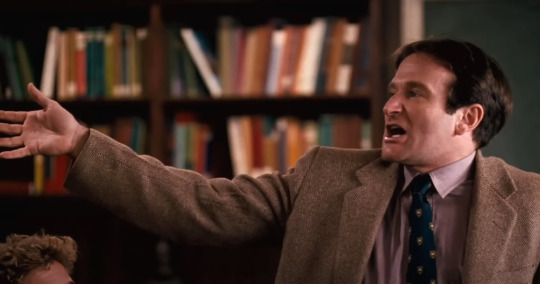
Good figurative writing is electrifying.
It adds beauty and depth to your prose in a way literal language struggles to match.
But the challenge of good figurative language is that it doesn’t come from your head — it comes from your gut.
You don’t sit there and systematically craft metaphors by analyzing and connecting two separate ideas; instead, you let your intuition take the wheel, and you follow it down any and every dimly lit street, until you reach its intended destination.
Sometimes that destination is beautiful and inspiring. Other times (oftentimes) it’s a horrible, ugly place that should never see the light of day.
But the trick is this: to write good, natural figurative language, you need to let your intuition run wild, because for every few bad metaphors you write, a great one will emerge — and that’ll be the spark that brings your image or scene to life.
Nobody illustrates this process better than Mr. Keating in Dead Poets Society.
Empowering your gut to write better figurative language
youtube
In the above scene, Todd is the writer, and the class is his inner critic. His writing is stifled by their laughter and judgment, and he’s afraid to follow his gut on strange images, such as “truth like a blanket that always leaves your feet cold.”
But Mr. Keating (Robin Williams, God bless him) pushes Todd to ignore the class, putting a hand over Todd’s eyes and giving commands like, “Don’t think — answer!” and, “Say the first thing that pops into your head, even if it’s total gibberish!” Mr. Keating gives Todd permission to run with the wildest of impulses — and the end result is a fascinating string of figurative language and images, ranging from “sweaty-toothed mad man” to his full elaboration on the blanket of truth.
To write better figurative language, you need to be your own Mr. Keating. You need to give yourself permission to write (and pursue) gibberish, so that something artful and organic may jump out of you.
Here’s some advice on how to make that happen.
1. Start with freewriting
Freewriting is an exercise where you write for a short period of time without a filter, without editing, and without stopping. The goal is to shut down your inner editor and make fresh connections between ideas — which makes it great for figurative writing, especially if you tend to struggle with metaphors and similes. The next time you’re working on a scene, take just 5 minutes to freewrite some relevant similes and metaphors. Most will be nonsensical, but you’ll often come away with at least one great idea.
2. Write similes before metaphors
If your goal is to write metaphors, I suggest you start by writing similes. The word “like” is a helpful bridge, making it easier to form initial connections between unrelated ideas. Then, in revision, you can experiment with deleting the word “like” if you want to double down with a metaphor.
3. Trust the connection is there
When your subconscious makes a connection between two unrelated ideas, know that there is a connection, even if it seems completely random on the surface. Your subconscious wouldn’t have made the connection if there wasn’t something there — you just need to find it. Which brings me to #4.
4. Don’t judge a rabbit hole before diving in
Remember in the scene above how Todd initially shies away from the idea that truth is like “a blanket that leaves your feet cold”? The class laughs, but Mr. Keating encourages Todd to go further, and further, until Todd finally stumbles into a fully-realized simile that silences everyone. Just like the class, you might think your figurative language is dumb at first, but always take a few minutes to go down the rabbit hole and explore its potential.
5. Ask yourself questions
When you’re trying to explore and develop a piece of figurative language, ask yourself questions as Mr. Keating asks Todd:
What do you see? “A mad man.” What kind? “A crazy mad man.” You can do better. “A sweaty-toothed mad man.” Describe what you see. “A sweaty-toothed mad man with a stare that pounds my brain.” That’s excellent. Give him action. “And all the time he’s mumbling.” What’s he mumbling? “Mumbling truth. Truth like a blanket that leaves your feet cold.” Tell me about that blanket. — And so on.
Even if it feels like you’re going in circles, keep riffing and elaborating upon the idea until you land on something that works.
O Captain! My Captain!
To quote Mr. Keating, who in turn quotes Whitman: “The powerful play goes on and you may contribute a verse. What will your verse be?”
Whatever your verse, I hope figurative language plays a part.
— — —
Hey there! My name’s Mike, and I’m a writer & copywriter with an MFA in fiction. For more tips on how to hone your craft and nurture meaningful stories, follow my blog.
And thanks to @vilchen, whose original question about half a year ago prompted this post. This is an updated version of my original answer.
1K notes
·
View notes
Text
Writing great descriptions
Some constant feedback I've been getting on my work is that I'm really good at writing descriptions of places and characters. So, I thought I'd share how I describe things in my writing:
1. Use the 5 senses
This may seem pretty obvious. It's advice that you'll probably hear a lot.
However, very few writers actually implement it.
Yes, sight is very important in fiction, because it helps your reader visualize the setting and characters. But your descriptions will feel bland if that is all you use.
But I also wouldn't recommend using all 5 senses in one description.
Pick those that would stand out. Unless your character can't see, sight will most likely be one of the senses you choose. Then, think about whether there would be a specific sound that the character would pick up on. Maybe there's a particular smell. Then focus on those.
Maybe your character is seeing the gold of silk bedsheets whilst feeling its smoothness and smelling cologne.
Maybe they're tasting chemicals in the air and smelling smoke etc.
Choose 2/3 senses and hone in on those.
2. Live through your character
This step goes for any form of narration that is close to your character - First person, third person deep, third person subjective, stream of consciousness etc.
Where a description is written through the character's eyes, you need to convey the place/character in the way they would.
Is your character very attracted to eyes? Then they'd spend more time describing another character's eyes. Has your character never smelled cow dung? Then that may be something they notice aptly about their setting. Is your character vain? Do they have any interests that might inform their view of the world?
An artist will notice different things than a builder. A writer might imagine the event/character as a scene - noticing the poetic aspects of something. A professional athlete might notice someone's physical aptness for a particular sport. A chef will describe a taste experience differently than a hungry sailor etc.
Make sure to use your character's senses.
3. Bring in emotion/association
Often, places/people are poignantly described through linking them to another experience/thing or by focusing on the emotion they evoke.
Does the setting evoke wonder, disgust or fear? Does it look like a haunted house or a fairytale castle?
Does a character radiate kindness or intimidation. Do they make your POV character think of lazy days or a roller-coaster?
How can you describe the place/person on a deeper level than with the 5 senses?
Even better if you can incorporate tip 2 and make the emotion/association specific to the POV character's perspective.
4. Use the right words
This tip has a few aspects to it.
Firstly, it's important to orientate your reader through description. Otherwise, you might end up with talking/floating head syndrome. BUT, it's crucial not to overdo the descriptions in your work. Long, purply descriptions lose readers' attention. So, you need to convey what is necessary to immerse they reader in as few words as possible.
This requires using precise adjectives and adverbs. Don't string together long sentences of descriptors if two better words could convey the same thing. As long as you don't end up sounding like a dictionary, a thesaurus is your friend. Look for the word that is specific to your intention and use only that.
Secondly, it's important to consider the connotations of a word/the mood a word created. If you're describing a fairytale castle, the word "gross" is probably less appropriate than "grand" even though they can literally be used for the same thing.
Think of the mood you want to convey. How do you want the reader to experience this place/character. And use words that will reinforce that mood.
"Magic" and "sorcery" have different connotations. As do "secret" and "clandestine".
Good descriptions use the right words.
This is also something you can improve on/fix during editing. So, you don't necessarily have to get caught up on finding the perfect word whilst drafting.
5. Only describe what is necessary
Some things are universal. People have eyebrows. Toiletpapier looks like toiletpapier. A door is a door.
So, unless there's something note-worthy about an everyday object, it really isn't necessary to describe it.
You can just say: she opened the window. You don't have to describe the pane, the reflection of sunlight on the glass etc. Unless it's stained glass or a three-story Victorian bay window or something like that.
Sometimes, it's fitting to describe something others would have experienced, but that is in limited circumstances. If you're writing a love scene, maybe it's worth it to describe the feeling of bedsheets against the character's bare back etc.
A good rule is not to describe anything your character isn't experiencing or wouldn't notice. Don't go into detail explaining the way a wind-chime sounds if there isn't even a breeze. Don't describe a kitchen floor if it isn't something the character wouldn't have commented on.
Unless you have a very good reason.
So, those are my tips on writing great descriptions. I hope that this can be useful. If you would like me to post some examples from my latest novel, please let me know.
Reblog if you found these tips useful. Follow me for similar content.
512 notes
·
View notes
Note
What’s the difference between shy, timid, and reserved?
Shy vs Timid vs Reserved
Shy, timid, and reserved are all synonyms of one another, so on the surface they appear to be the same, but there are actually subtle differences between them.
The use of shy implies that someone is nervous around others, prefers not to speak, avoids eye contact. It’s mainly applied to people, particularly younger adults and kids, usually in reference to a situation involving other people, such as a social setting or performance/public speaking (though it can sometimes be applied to other situations, like someone being “gun shy” or “relationship shy.”) Shyness is lighter than timid or reserved. A shy person is nervous but not afraid. They’re probably smiling, maybe blushing or giggling nervously, and may even hesitantly and quietly respond to dialogue.
The use of timid implies fear... the person isn’t just nervous, they’re afraid. Timid is applied to people of all ages (though rarely to babies), as well as to animals, and is can be applied to a variety of situations. Timid is heavier than shy or reserved, and a person who is timid isn’t smiling, blushing, or giggling--they’re wide-eyed, hesitating, maybe even shaking or gulping.
The use of reserved implies that someone chooses to hold back on social interactions. They’re not nervous or afraid, they simply don’t prefer to speak or engage deeply. They may not have anything to say, or they may prefer to observe rather than engage. Being reserved is linked with maturity, so it’s not often applied to young children like shy and timid can be. A person who is reserved can engage in a wide range of moods, facial expressions, and body language. The key is that they’re simply holding back on what they say, and their mood, facial expressions, and body language--though visible--are toned down. Reserved is commonly used in reference to social situations, though it can also refer to someone who is reserved in specific actions, like someone can be a reserved spender, meaning they hold back on spending a lot of money.
I hope that helps!
————————————————————————————————-
Have a question? My inbox is always open, but make sure to check my FAQ and post master lists first to see if I’ve already answered a similar question. :)
65 notes
·
View notes
Note
I saw your post helping someone nail down their writing style, but I’m having trouble even noticing different styles. How do you recognize someone’s style? Is it word choice? Formatting? Both?
What is Writing Style?
Writing style is “all of the above.” It’s...
how you structure sentences
the kinds of words you use and how you use them
what kind of imagery you create
whether you trend toward longer or shorter sentences
whether you trend toward longer or shorter paragraphs
whether you trend toward longer or shorter chapters
the kind of word play you use and how often
the way you use themes, symbolism, and motifs
the themes, symbolism, and motifs you use often
whether you use a lot or a little description
whether you tend toward simple words or ornate words
the kinds of characters you create
what you’re really good at (ie: writing ensembles)
what tense you prefer to write your stories in
what POV you prefer to write your stories in
whether you prefer single or multi POV
writing quirks (using a lot of ellipses, or over using commas, for example)
whether or not you use obscenities, and if so, how often
the typical “heat level” of any romance and sex that might appear
how you write love scenes if you write them at all
tropes that make frequent appearances
cliches that make frequent appearances
typical mood
typical author tone
hallmarks of your stories, like fast cars, blood, dancing
hallmarks of your writing, like particular word use grammatical choices
the degree to which you describe setting elements and how
how deep you go into world building, back story/mythology, etc.
I could keep going... the point is, anything and everything about your writing and what you write is part of your writing style. :)
————————————————————————————————-
Have a question? My inbox is always open, but make sure to check my FAQ and post master lists first to see if I’ve already answered a similar question. :)
166 notes
·
View notes
Text
Something I think new/young writers should know is that you need to do what’s best for YOU. Yes, everyone’s gonna tell you that you should have an outline but…maybe that doesn’t work for you. As I’ve grown as a writer, I’ve realized that outlines aren’t really for me. And that’s OK. You shouldn’t be doing something just because it works for a lot of people. It has to work for YOU.
349 notes
·
View notes
Text
My favorite trope is characters who don’t know what it’s like to be treated nicely, and how they react when they meet kind/decent/non-asshole people.
-the look of surprise when someone brings them a cup of tea, unasked for, just saying they thought they would enjoy it.
-breaking a glass on accident and panicking, expecting terrible, terrible things, but a caretaker just bumbles over with a broom, pulling on a pair of slippers and telling them not to move, not to step on anything.
-being given an unexpected hug, and stiffening, then melting into it.
-relaxing slowly, until one day they’re surprised at how comfortable they are with these new people.
-latching onto the roughest, meanest of the bunch, because that’s who they were familiar with, and the gruff, tough, scary person ending up softening up to them.
-always waiting for the other shoe to drop, even though it doesn’t.
-when someone says good morning to them first, and it startled them because they’re used to being ignored at best.
21K notes
·
View notes
